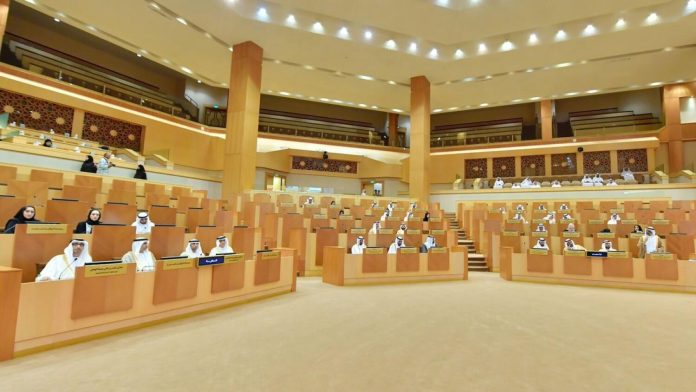The Federal National Council (FNC) stands as one of the UAE Constitution‘s five key authorities, alongside the Supreme Council of the Union, the President and Vice President, the Council of Ministers, and the Federal Judiciary.
Derived from the Shura system predating the UAE’s establishment on December 2, 1971, the FNC is a parliamentary body rooted in consultative decision-making.
Its inception traces back to the first FNC session on February 12, 1972, just two months after the nation’s formation under Sheikh Zayed bin Sultan Al Nahyan.
Originally appointed by emirate rulers, the FNC’s structure transformed in 2006, as Sheikh Khalifa bin Zayed bin Sultan Al Nahyan declared that half the FNC would be elected.
This expansion allowed Emiratis to participate in elections and voting. This milestone included nine Emirati women, with Dr. Amal Al Qubaisi’s election as the Speaker of the FNC from 2015 to 2019, marking a historic moment in the Arab world.
Over 51 years, the FNC’s contributions include 493 sessions with debates on constitutional amendments, passage of bills, discussion of public issues, ministerial questioning, and 67 statements on local and international affairs.
With 40 members distributed across emirates, half now elected through an electoral college, the FNC’s roles encompass legislative activities and political oversight, including proposing constitutional amendments, federal laws, and budget drafts.
Members represent the entire Union rather than their emirate of origin.
To qualify as an FNC member, individuals must be UAE citizens residing in their represented emirate, at least 25 years old, of good reputation, and literate.
Council sessions occur publicly or in secret upon request. Decisions are made by an absolute majority, and the President’s vote breaks ties.
The plenary session’s agenda determines legislative and supervisory functions, and speaking protocol is rigorous.
Preparations for the upcoming FNC elections involve registration, scrutiny, and verification. The election allocates 20 FNC seats, with Abu Dhabi and Dubai receiving four each, Sharjah and Ras Al Khaimah three each, and Ajman, Umm Al Quwain, and Fujairah two each.



